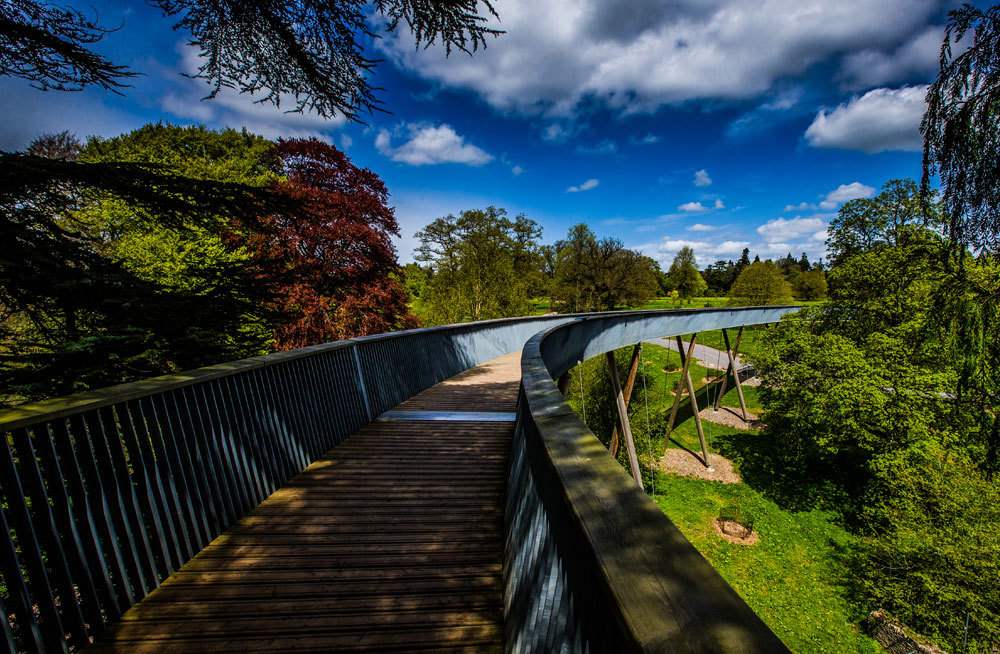Case study: Westonbirt
Westonbirt - A case study
We love to share positive news, and what could be better than the diversion of 6,815 kilograms of carbon dioxide from the atmosphere, equivalent to more than 11 flights from London to New York?
In just under one year of using the Bio-Bee food waste collection service, Westonbirt Arboretum was able to divert 11.5 tonnes of unsold and surplus food from landfill to our anaerobic digestors at Avonmouth, producing 2,516 metres cubed of bio-methane to fuel the Bio-Bee for 5,050 miles or 407 journeys between Bristol and Bath!
Kit Beaumont, Recreation Manager at Westonbirt, sat down with us to answer a few questions about the Bio-Bee service, his role at Westonbirt, and the importance placed on sustainability within the Arboretum.
1. What is the best way to describe Westonbirt to those who have not visited before?
Westonbirt is the National Arboretum, and is essentially a garden of trees, where visitors can see trees from all over the world. We are home to 2,500 different species, as well as five national tree collections. As well as a popular visitor attraction, welcoming over 500,000 visitors a year, it is a site of immense conservational and scientific importance. Our mission is to connect people with trees through conservation, education and participation.
2. Talk us through a typical day in your role as Recreation Manager for Westonbirt.
I am responsible for ensuring the safe day-to-day running of the site, managing everything from large scale public events to waste management. I also manage the recreation team, who work to ensure that visitors get a first class experience in everything from admissions to the maintenance of play equipment.
3. How important a role does sustainability play in the daily work and decisions made at Westonbirt?
Our mainstay of the arboretum is already very green – our trees! However, when you add people, waste and energy-use into the mix you can begin to see where we have an impact on the environment.
At Westonbirt we strive to lessen our impact and co-exist with nature in closer harmony through a number of initiatives including recycling food waste through the Bio-Bee, using rechargeable batteries and bulk buying plant based detergents in our office kitchens. These are just a handful of the initiatives we are working on! We have also set up a ‘Green Team’ made up of staff from across the site who are championing green and sustainability initiatives.
4. What made you decide to start using our Bio-Bee food waste collection service?
We have an onsite café that produces food waste, as well as the waste produced by staff in our offices, so we were keen to find a way to dispose of this waste responsibly. As well as working with our catering teams and staff to ensure that they do not over-produce food, helping to minimise the amount that goes to waste, we wanted to find a local company that could help us divert this waste from landfill, as our local council does not collect food waste.
GENeco hit the mark in terms of both the service that they offer as well as their eco-credentials. In 2019, we collected 10 tonnes of food waste from our onsite catering facilities and offices – the equivalent to two adult killer whales!
5. In your opinion, what is the best feature of the Bio-Bee?
I love the fact that it is powered by the gas produced by the food it collects – a great example of both a circular economy and what is possible with a bit of creative thinking!
6. If you had to give one top tip to our readers, what would it be?
Follow the simple mantra of Reduce, Reuse and Recycle. Reducing consumption is the best way to battle climate change and minimise our impact on the planet.
Find out more about Westonbirt.
Our Bio-Bee service can also help your business deal with its food waste in a sustainable way – if you’re interested, please get in touch with a member of our team at info@geneco.uk.com or call us on 01225 524560.

